Regional
IAEA chief says Iran’s nuclear enrichment activity remains high
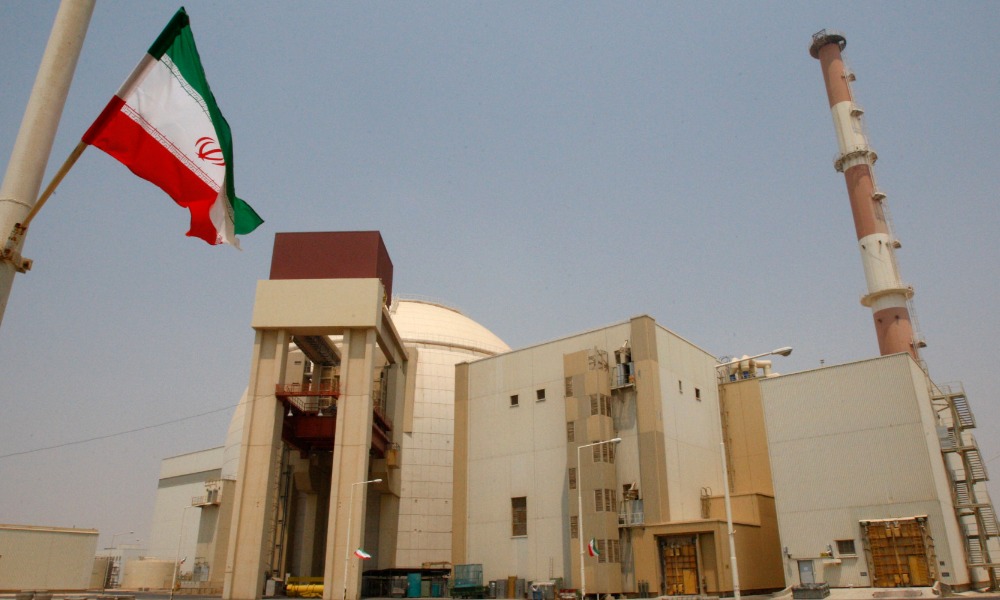
Iran continues to enrich uranium well beyond the needs for commercial nuclear use despite U.N. pressure to stop it, IAEA chief Rafael Grossi said on Monday, adding he wanted to visit Tehran next month for the first time in a year to end the “drifting apart”.
Speaking to Reuters after he briefed EU foreign ministers on the subject, the head of the U.N.’s nuclear watchdog said that while the pace of uranium enrichment had slowed slightly since the end of last year, Iran was still enriching at an elevated rate of around 7 kg of uranium per month to 60% purity, Reuters reported.
Enrichment to 60% brings uranium close to weapons grade, and is not necessary for commercial use in nuclear power production. Iran denies seeking nuclear weapons but no other state has enriched to that level without producing them.
Under a defunct 2015 agreement with world powers, Iran can enrich uranium only to 3.67%. After then-President Donald Trump pulled the U.S. out of that deal in 2018 and re-imposed sanctions, Iran breached and moved well beyond the deal’s nuclear restrictions.
Between June and November last year, Iran slowed down the enrichment to 3 kg per month, but jumped back up to a rate of 9 kg at the end of the year, the watchdog, known as the International Atomic Energy Agency (IAEA), previously reported.
The increase came soon after Tehran barred a third of the IAEA’s core inspections team, including the most experienced, from taking part in agreed monitoring of the enrichment process, read the report.
“This slowdown, speedup thing is like a cycle that for me does not alter the fundamental trend, which is a trend of constant increase in inventory of highly enriched uranium,” said Grossi.
A spokesperson for Iran’s Atomic Energy Organisation was not immediately available for comment.
The IAEA warned at the end of 2023 that Tehran already had enough material to make three nuclear bombs if it enriches the material now at 60% to beyond 60%.
“There is a concerning rhetoric, you may have heard high officials in Iran saying they have all the elements for a nuclear weapon lately,” Grossi said.
He said the concern was all the higher because of what he termed current circumstances in the Middle East, a reference to tensions over Israel’s war with Iran-backed Hamas in Gaza.
“We seem to be drifting apart… Iran says they are not getting incentives from the West, but I find this logic very complicated to understand because they should work with us… It should never be contingent on economic or other incentives.”
Before visiting Tehran, Grossi is to fly to Moscow to meet Russian President Vladimir Putin to discuss Iran and the Middle East, along with Ukraine.
Russia is a signatory of the 2015 deal, known as the Joint Comprehensive Plan of Action (JCPOA), alongside the U.S., China, France, Britain and Germany. The deal lifted sanctions on Iran in exchange for curbs on its nuclear activities.
“Russia has a role to play on Iran. It has played a role in the past as a JCPOA country and in the current circumstances where JCPOA is all but disintegrated, something must fill the void,” he said.
Grossi said he saw a decrease in military operations around the Russian-occupied Zaporizhzhia nuclear power plant in Ukraine, the biggest nuclear power plant in Europe, Reuters reported.
Fears of a serious nuclear incident were high when Russian forces took over the facility in 2022 and again following the destruction of the Kakhovka Dam last year.
“There hasn’t been a militarization, any deployment of heavy artillery,” he said, adding that nearby combat zones and recurring blackouts remained a worry.
“The minimum staff required to look after the plant in the current situation is there,” he said.
Grossi said the minimum staffing was still met despite about 100 members refusing to sign a new contract with Russia’s Rosatom that took over operations of the idled plant in 2022.
The EU has so far held back on sanctioning Russia’s state-owned nuclear firm Rosatom or any of its subsidiaries despite numerous calls to target that industry. Europe still relies heavily on Rosatom which supplies nearly 50% of the world’s enriched uranium.
“Many companies in the West depend on Russian supplies – enriched uranium or fuel… The consensus is sanctioning Rosatom would not be realistic and it’s impractical. It would put the nuclear industry at a standstill in many countries,” Grossi said.
Reducing dependence on Russia’s nuclear sector would cost Europe billions, Grossi said, and he saw no immediate shift away. He added that the larger issue was infrastructure and incentives, and projections of rising uranium demand globally.
“Frankly, I see an increased presence of Russian uranium enrichment capabilities in the world rather than a decrease,” he said.
Regional
Iran can’t enrich uranium, could only import it for civilian program, Rubio says
Iran has denied wanting to develop a nuclear weapon and says its nuclear program is peaceful. U.S. and Iranian officials will meet in Oman on Saturday for a third round of talks.
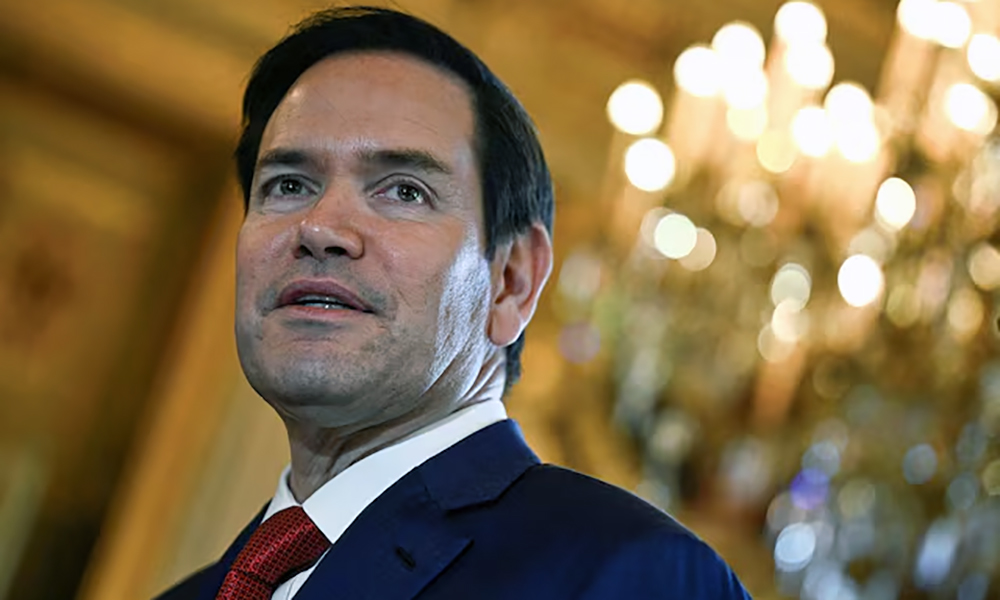
Iran will have to stop enriching uranium under any deal with the United States and could only import what is needed for a civilian nuclear program, U.S. Secretary of State Marco Rubio said ahead of talks between Tehran and Washington on Saturday, Reuters reported.
However, Iran has already made clear that its right to enrich uranium is not negotiable. When asked about Rubio’s comments, a senior Iranian official, close to Iran’s negotiating team, again said on Wednesday “zero enrichment is unacceptable.”
The U.S. is seeking to prevent Iran from developing a nuclear bomb and President Donald Trump has imposed a “maximum pressure” campaign of sanctions and threatened to use military force if Iran does not end its nuclear program.
Iran has denied wanting to develop a nuclear weapon and says its nuclear program is peaceful. U.S. and Iranian officials will meet in Oman on Saturday for a third round of talks on Tehran’s disputed nuclear program.
“There’s a pathway to a civil, peaceful nuclear program if they want one,” Rubio told the “Honestly with Bari Weiss” podcast on Tuesday.
“But if they insist on enriching, then they will be the only country in the world that doesn’t have a ‘weapons program,’ … but is enriching. And so I think that’s problematic,” he said.
U.S. Middle East envoy Steve Witkoff last week said Iran does not need to enrich past 3.67% – a remark that raised questions as to whether Washington still wanted Tehran to dismantle its enrichment program, read the report.
Witkoff then said a day later that Iran must “stop and eliminate its nuclear enrichment.”
Rubio said on Tuesday that Witkoff was initially talking about “the level of enriched material that they would be allowed to import from outside, like multiple countries around the world do for their peaceful civil nuclear programs.”
“If Iran wants a civil nuclear program, they can have one just like many other countries in the world have one, and that is they import enriched material,” he said.
The U.N. nuclear watchdog – the International Atomic Energy Agency – has said that Iran is “dramatically” accelerating enrichment of uranium to up to 60% purity, close to the roughly 90% weapons-grade level.
Western countries say there is no need to enrich uranium to such a high level for civilian uses and that no other country has done so without producing nuclear bombs.
Regional
Lavrov in Uzbekistan for talks on various issues including regional security matters
Lavrov is expected to meet with Uzbek President Shavkat Mirziyoyev and with Uzbek Foreign Minister Bakhtiyor Saidov
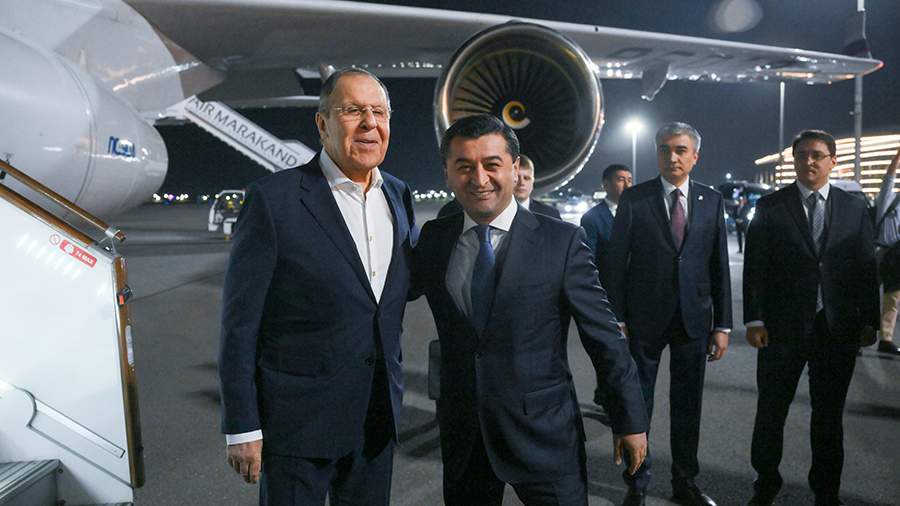
Russian Foreign Minister Sergey Lavrov will meet with Uzbek government officials this week to discuss bilateral relations, Eurasian integration and preparations for the upcoming 80th anniversary of victory over Nazi Germany.
The Russian Foreign Ministry’s official spokeswoman, Maria Zakharova, said Lavrov is expected to meet with Uzbek President Shavkat Mirziyoyev and will hold talks with Uzbek Foreign Minister Bakhtiyor Saidov, TASS reported.
“The sides will discuss current international issues of mutual interest, regional security matters, cooperation within the CIS, SCO and Central Asia-Russia frameworks, taking into account the closeness or similarity between Moscow and Tashkent’s approaches,” Zakharova said adding that “the agenda will also include matters of Eurasian integration processes with Uzbekistan’s observer status in the EAEU in mind.”
During his meetings with leaders of the Commonwealth of Independent States (CIS) last December, Russian President Vladimir Putin invited them to attend the Victory Day celebrations in Moscow scheduled to be held on May 9.
Also, military units from 19 friendly nations have been invited to participate in the Red Square Parade. The list of these countries has not yet been published, but Uzbek troops marched in the Red Square five years ago, during the 75th anniversary of Victory in the Great Patriotic War.
Uzbekistan traditionally holds numerous Victory Day celebrations and campaigns.
Meanwhile, the Russian Foreign Ministry has emphasized that Moscow and Tashkent have “constructive, respectful and mutually beneficial ties, based on the principles of friendship, sovereign equality and respect to each other’s interests.”
The sides actively cooperate in trade, energy, science and humanitarian affairs.
Special attention will be paid to the issue of labor migrants, as around 1.1 million Uzbek citizens are employed in various sectors in Russia.
Talks will also reportedly include Afghanistan, as this is an important subject for the two nations, TASS reported.
Other regional and global issues are also expected to be touched upon during Lavrov’s meetings with Uzbek officials in Samarkand.
Regional
At least 20 feared killed in militant attack on tourists in Indian Kashmir, security sources say
One security source put the death toll at 20; the second put it at 24 and the third at 26. All three spoke on condition of anonymity as they were not authorised to speak to the media.
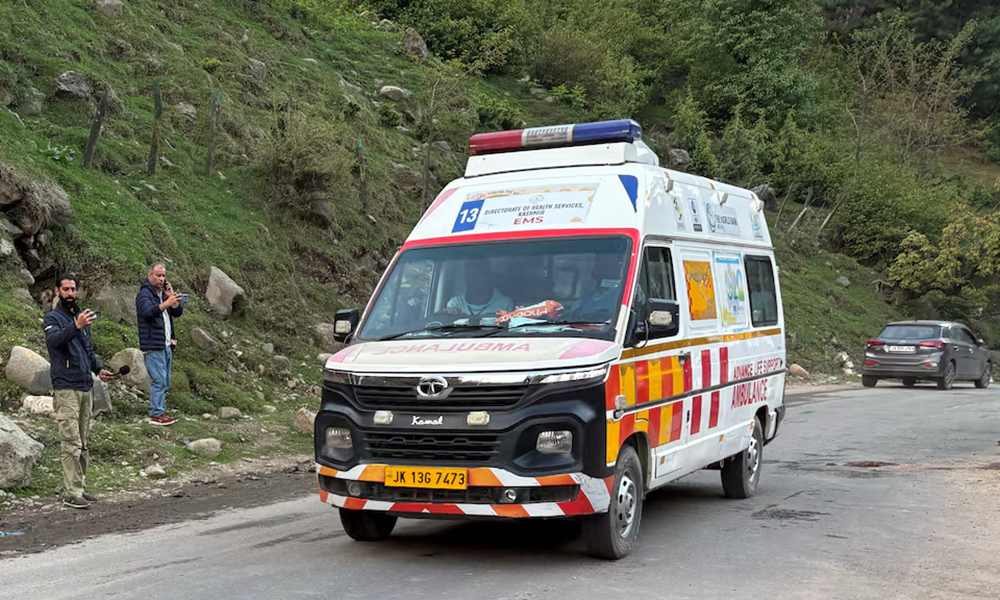
At least 20 people were feared killed after suspected militants opened fire on tourists in India’s Jammu and Kashmir territory on Tuesday, three security sources said, the worst attack on civilians in the troubled Himalayan region for years, Reuters reported.
The attack occurred in Pahalgam, a popular destination in the scenic, mountainous region where mass tourism, especially during the summer, has resurged as Islamist militant violence has eased in recent years.
One security source put the death toll at 20; the second put it at 24 and the third at 26. All three spoke on condition of anonymity as they were not authorised to speak to the media.
“The firing happened in front of us,” one witness told broadcaster India Today, without giving his name. “We thought someone was setting off firecrackers, but when we heard other people (screaming), we quickly got out of there … saved our lives and ran.”
“For four kilometers, we did not stop … I am shaking,” another witness told India Today.
The attack occurred in an off-the-road meadow and two or three militants were involved, the Indian Express newspaper reported, citing an unidentified senior police officer.
“The death toll is still being ascertained so I don’t want to get into those details,” Jammu and Kashmir Chief Minister Omar Abdullah said in a post on X. “Needless to say, this attack is much larger than anything we’ve seen directed at civilians in recent years.”
The nationalities of the victims were not immediately known, read the report.
A little-known militant group, the “Kashmir Resistance,” claimed responsibility for the attack in a social media message. It expressed discontent that more than 85,000 “outsiders” had been settled in the region, spurring a “demographic change”.
“Consequently, violence will be directed toward those attempting to settle illegally,” it said.
Reuters could not independently verify the source of the message.
The regional government of Jammu and Kashmir, where Pahalgam is located, told its legislature this month that nearly 84,000 non-locals, from within India, had been given domicile rights in the territory in the last two years.
“Those behind this heinous act will be brought to justice … They will not be spared!” Indian Prime Minister Narendra Modi posted on X. “Their evil agenda will never succeed. Our resolve to fight terrorism is unshakable and it will get even stronger.”
Indian Home Minister Amit Shah said he was rushing to Kashmir to hold a security meeting.
In Washington, the White House said U.S. President Donald Trump had been briefed on what a White House spokesperson described as a “brutal terrorist attack.”
India’s foreign ministry subsequently said Trump called Modi and “expressed full support to India to bring to justice the perpetrators of this heinous attack.”
Militant violence has afflicted the Himalayan region, claimed in full but ruled in part by both India and Pakistan, since an anti-Indian insurgency began in 1989. Tens of thousands of people have been killed, although violence has tapered off in recent years, Reuters reported.
India revoked Kashmir’s special status in 2019, splitting the state into two federally administered territories – Jammu and Kashmir, and Ladakh. The move allowed local authorities to issue domicile rights to outsiders, allowing them to get jobs and buy land in the territory.
That led to a deterioration of ties with Pakistan, which also claims the region. The dispute has spurred bitter animosity and military conflict between the nuclear-armed neighbours.
Attacks targeting tourists in Kashmir have become rare. The last deadly incident took place in June 2024 when at least nine people were killed and 33 injured after a militant attack caused a bus carrying Hindu pilgrims to plunge into a deep gorge.
Some major militant attacks during the height of the insurgency coincided with visits from high-profile foreign officials to India, in likely attempts to draw global attention to Kashmir, Indian security agencies have said.
Tuesday’s attack came a day after U.S. Vice President JD Vance began a four-day, largely personal visit to India.
-

 World5 days ago
World5 days agoThousands of protesters rally against Trump across US
-

 Latest News5 days ago
Latest News5 days agoPolio vaccination campaign launched in Afghanistan
-

 International Sports3 days ago
International Sports3 days agoIPL 2025: Robo-Dog ‘Champak’ explained
-

 International Sports5 days ago
International Sports5 days agoIPL 2025: 14-year-old Vaibhav Suryavanshi becomes youngest IPL player
-

 Latest News3 days ago
Latest News3 days agoAriana Afghan Airlines increases flights to China
-

 World4 days ago
World4 days agoPentagon chief Hegseth shared sensitive Yemen war plans in second Signal chat, source says
-

 Latest News4 days ago
Latest News4 days agoChina invites various Afghan delegations to attend Shanghai forums
-
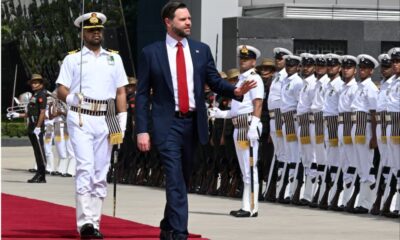
 Regional4 days ago
Regional4 days agoJD Vance arrives in India, to hold talks with Modi under US tariffs shadow
























